I’ve read a couple of blogs write about how installing software on Linux can be sometimes painstaking and that surprises me. Because if there’s anything I am sure about it is the fact that Linux has always had a convenient way for managing software via the repository and users could either use the package manager or the command line. Nowadays the software center is a lot more modern.
I can’t deny though, there are times when you want an application and it is not in the software center or in the default repository and you’ll have to manually add a third-party repository.
If you would rather download new software like you would install a .exe file on Windows then the Linux equivalent formats are DEB and RPM and here are the top websites from which you can get apps in those formats listed in alphabetic order.
1. Debian Packages Search
Debian Packages Search is the official website for the Debian distro and all its packages are free according to its free software guidelines. However, it also contains software freely licensed by copyright holders as well as non-free software.
The packages you can choose to download are listed according to their development stage i.e. stable, testing, and unstable.
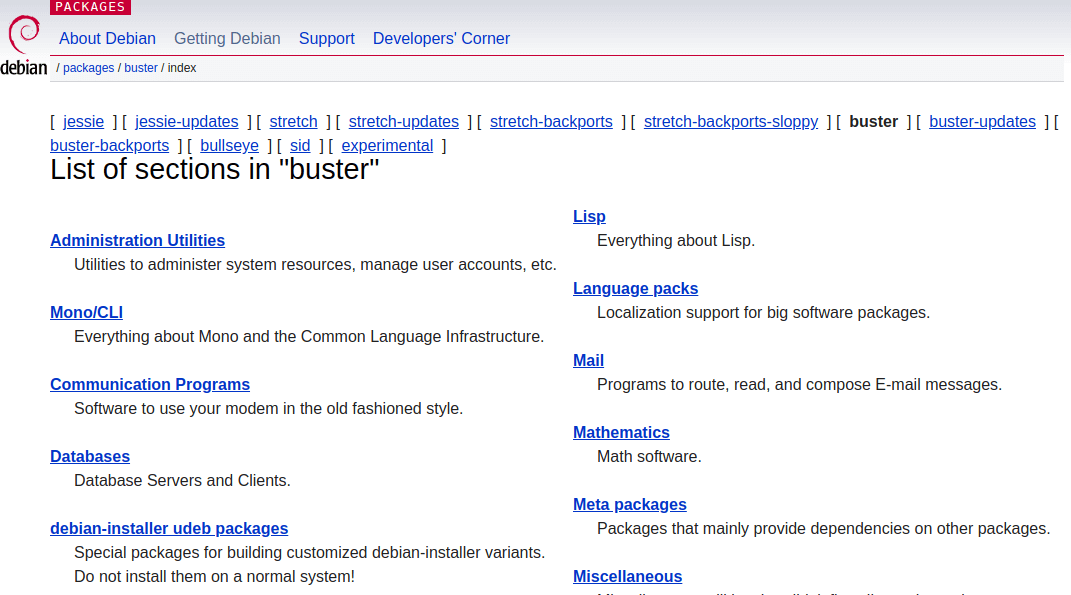
2. Launchpad
Launchpad is arguably the most popular website in this list given that it is the official repo from Canonical to developers and its frequent reference by Linux bloggers.
It doesn’t feature any smart filters to speed up finding DEB packages and it also provides RPMs and compressed TAR.GZ files. It has become increasingly less popular especially given the increasing popularity of Snaps and Flatpak.
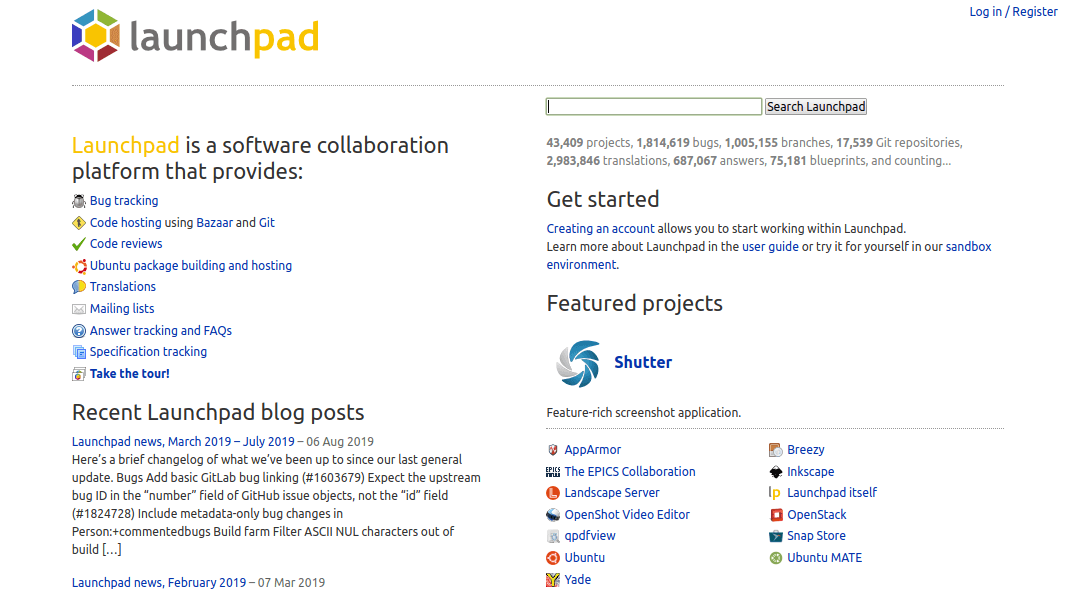
3. Open Build Service
Open Build Service is the one-stop spot for the development of the openSUSE distribution and you can find packages for Debian, Ubuntu, SUSE Linux Enterprise, Fedora, and other distros.
It is open for developers to build, compile, and distribute packages without bothering about whether it is based on Debian, Arch Linux, or any other major distribution.
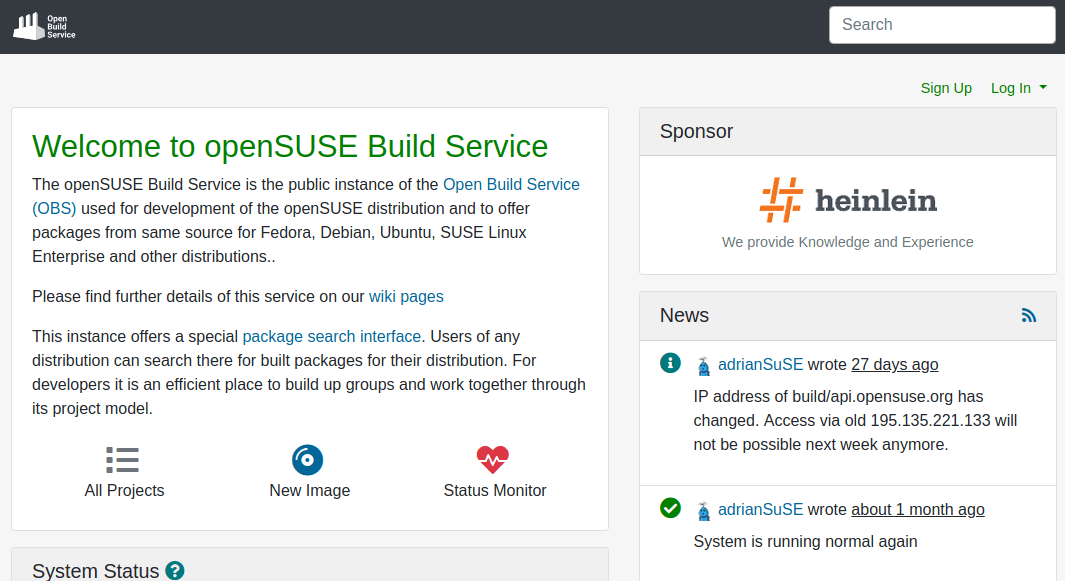
4. pkgs.org
pkgs.org is a simple website where you can find all the latest Linux packages to download without worrying about advertisements or spyware. It has millions of indexed packages for different distros in different formats especially DEB and RPM and you can filter search results by the version of your Linux distro.
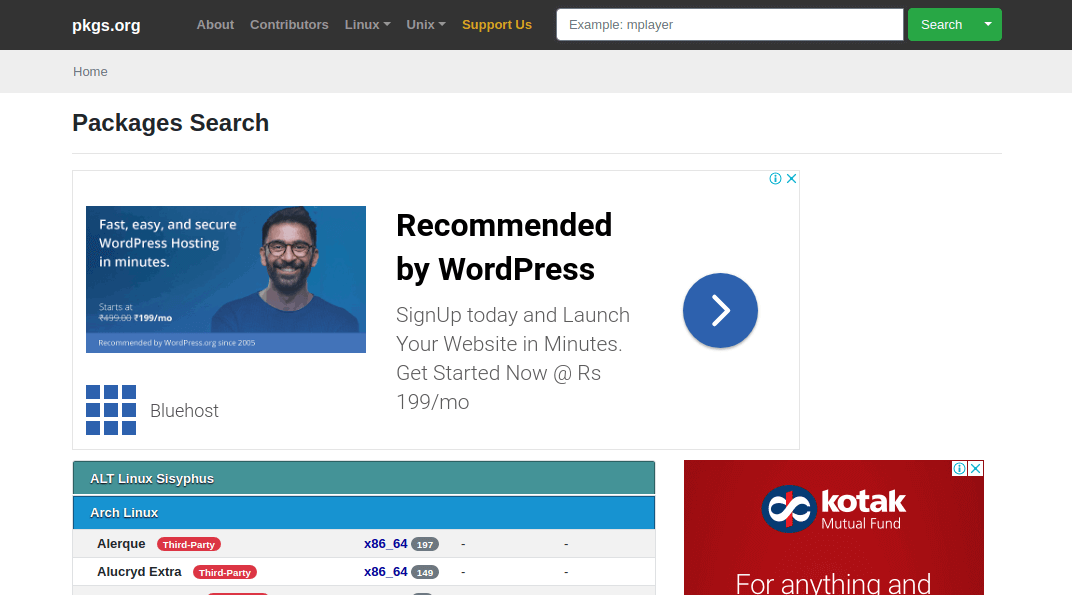
5. RPM Find
RPM Find is a simple website for an RPM-only package directory for downloading RPM software or maintaining system updates in an automated way. Unlike most other websites in this list, it doesn’t employ a fancy UI. It does, however, feature a quick search filter index of software by group, distribution, vendor, creation date, and name.
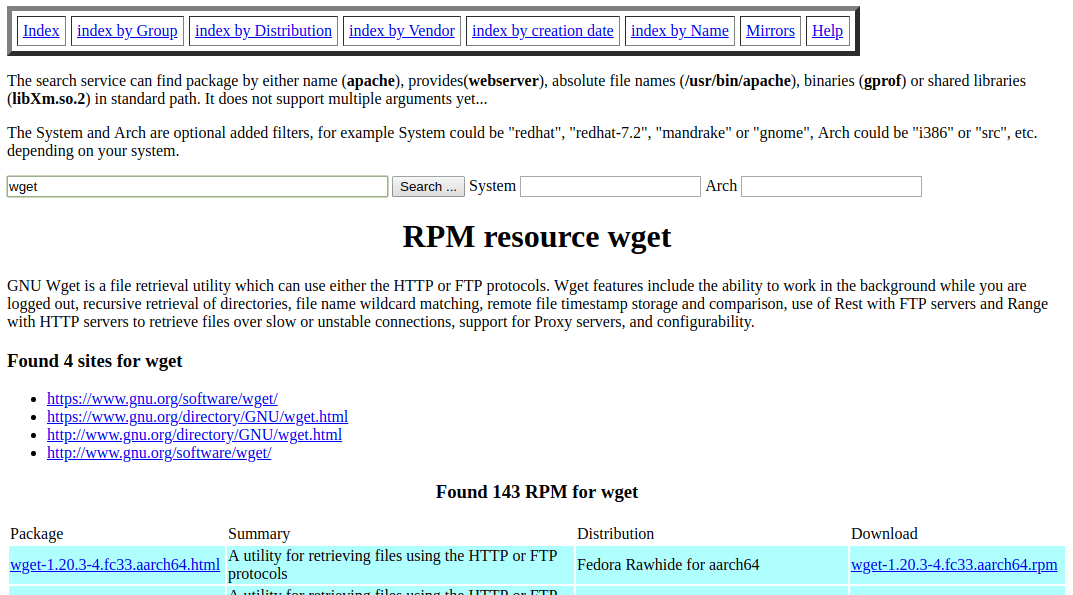
6. RPM Fusion
RPM Fusion is a third-party repository for RPM packages created as a fusion of Dribble, Livna, and Freshrpms. And because Fedora and Red Hat do not provide any non-proprietary software, this is the most popular place for downloading such packages. So, if you want to download that closed-source graphics card then you now know where to go.
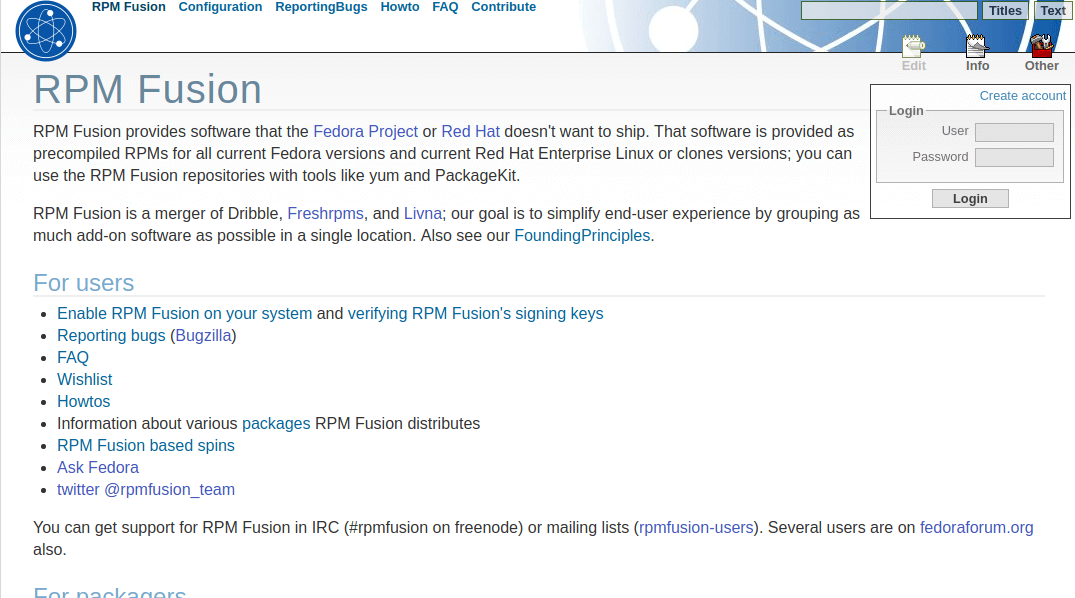
7. RPM PBone Search
RPM PBone Search allows users to run searches for RPM packages by name, name in FTP world resources, matching strings, software dependencies, etc. Its search feature is divided into a basic search where you can search for filenames and an advanced search where you can filter search results by any of the supported distros as listed on the website.
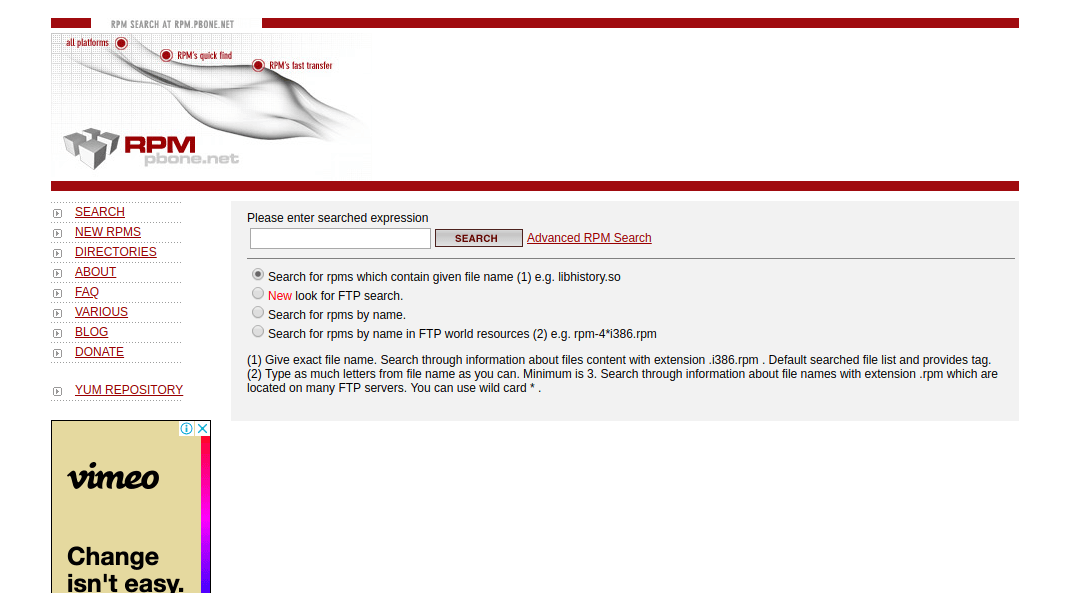
8. RPM Seek
RPM Seek is a website stylized as a search engine for Linux RPM packages although it also has packages in the DEB format. Searching for packages on the site is quick and easy especially given its already organized home page that groups the software into applications, system, amusement, documentation, development, and unsorted.
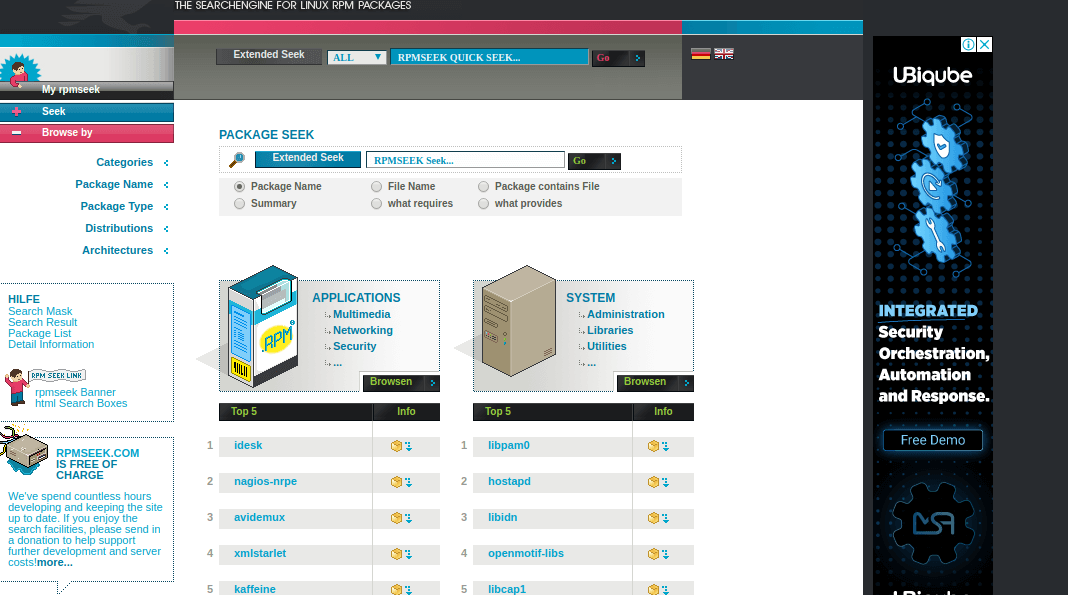
Notable Mentions
Apart from the websites dedicated to hosting packages irrespective of the distros, you can also search for packages on the official web pages for Ubuntu, Linux Mint, and Fedora.
So there you have it – the top websites from where you can download software in RPM and DEB formats. And as always, you are free to download software from Flathub, the Snap store, or the App Image repository.
